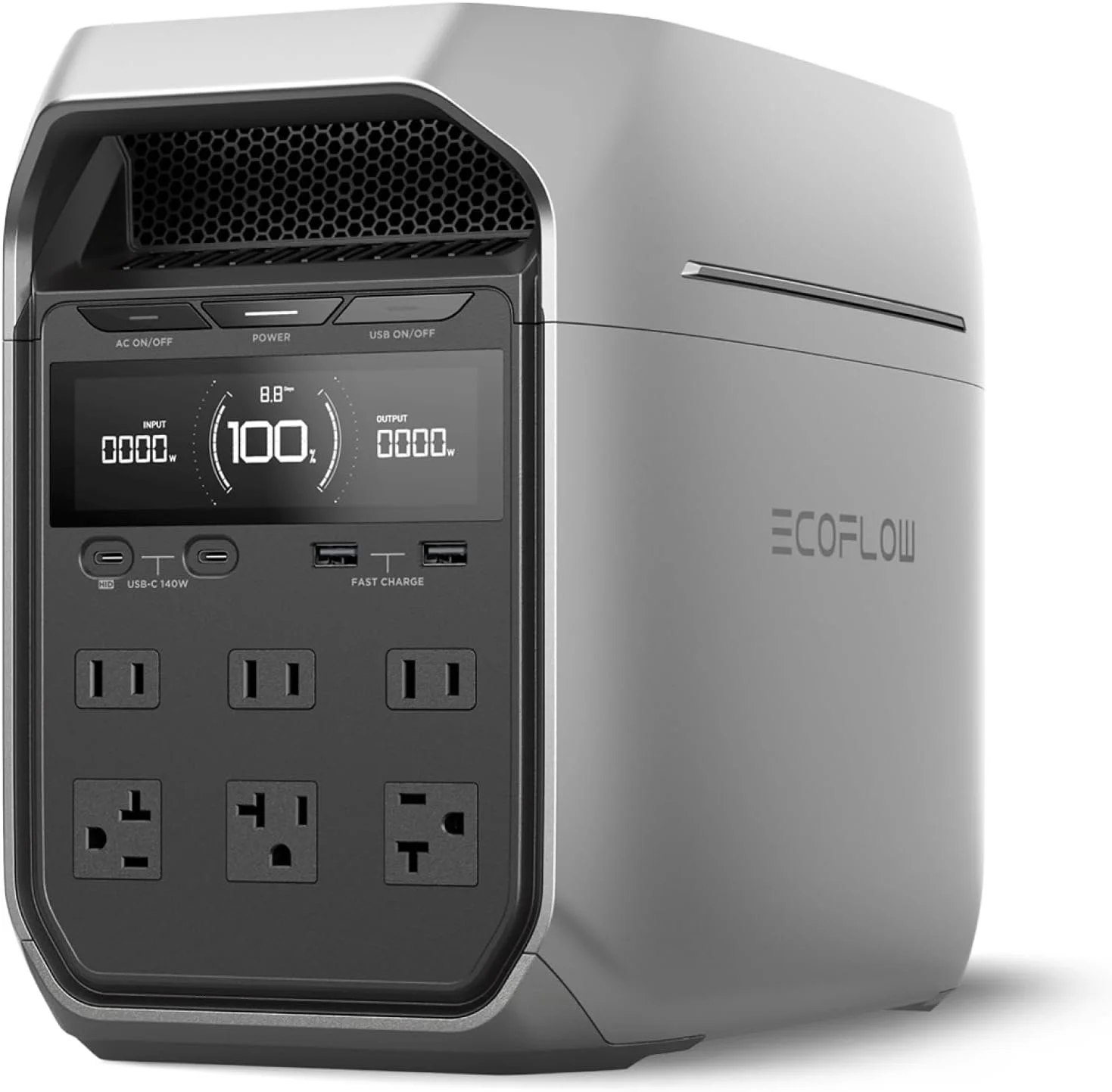best portable power stations 2025
Best Portable Power Stations 2025: EcoFlow vs Anker
Signal over noise. Truth over hype.
Best Portable Power Stations 2025
September update — the no-BS deep dive
The power blips. The fridge hum stops. Your router dies. Now it’s just you, a melting pint of Cherry Garcia, and a battery icon slipping into the red. In 2025, outages aren’t “if,” they’re “how long.” Gas generators will keep the lights on… and perfume your house with fumes if you slip up. Portable power stations solve the safety, noise, and maintenance mess. But they’re not cheap. Buy wrong and you’ve basically adopted a very heavy, very expensive paperweight.
I read the lab tests, the warranty pages, owner forums, and the fine print most reviewers pretend doesn’t exist. Then I stripped it to three picks: one you buy if you want to be done, one you buy if you want even more whole-home muscle, and one you buy if you need backup without torching your savings.
How I pick (and why you should care)
Power quality: clean sine wave with no dips/spikes. Laptops, fridges, and medical gear are picky; junk power kills them slowly.
Recharge speed (AC & solar): hours matter. Fast refuels turn a scary night into an annoying inconvenience.
Cycle life & chemistry: LiFePO₄ (LFP) is the 2025 baseline—thousands of cycles, better thermal stability.
Ecosystem & expandability: transfer-switch kits, extra batteries, alternator chargers, decent app, accessories that actually fit.
Support & warranty: you want a real 5-year warranty and a support path that doesn’t end in a chatbot loop.
Reality checks: weight, handles, wheels, outlet mix (TT-30, L14-30, 14-50, high-watt USB-C), and UPS switchover time.
If a model whiffs on two or more of those, I don’t recommend it—no matter how pretty the landing page looks.
Why this wins
If I had to buy one box for my RV and my house, it’s this one. The EcoFlow DELTA Pro 3 is a serious, do-everything station with ~4.1 kWh of LFP storage, ~4 kW continuous output (much higher surge), and true 120/240V split-phase so you’re not stuck in “only small things” land. Think: well pumps, small central ACs, dryers, induction cooktops (within reason).
Power where you need it. 120V for daily stuff, 240V when you need grown-up power. UPS around 10 ms means your router, NAS, or CPAP won’t face-plant during a blip. Fast refuels. Wall-to-full roughly around an hour-plus. That’s the difference between “we lost a freezer” and “we made tacos.” Ecosystem maturity. Smart Home Panel 2 for clean transfer to your breaker panel, add-on batteries, alternator charger, and even a quiet auxiliary generator if you insist on liquid fuel. RVer-friendly. The right outlets (hello, TT-30), honest surge handling, and an app that isn’t a science project.
Pros
True 120/240V split-phase for real appliances
Very fast AC recharge; strong solar input ceiling
Deep ecosystem: Smart Home Panel 2, extra batteries, alternator charging
Cons
- Heavy; best as a “roll-don’t-carry” base unit
- 120V and 240V are mode-selectable, not simultaneous
Pickori’s Pick EcoFlow DELTA Pro 3
What it runs (real scenarios): 24-hour outage, suburban home — fridge + lights + router + chargers + quick microwave cycles; add a small window/split AC and you’ll still make it to bedtime. RV in Texas heat — fridge + lights + laptops + short AC cycles while you cook on induction. Work shed — miter saw bursts + shop vac + lights without constant trips.
Who should buy it: folks who want one system for home + RV; buyers who’d like to start ~4 kWh and grow; anyone who values recharge speed + ecosystem polish over bare-bones pricing.
Who shouldn’t: apartments that only need fridge + Wi-Fi; users who want maximum 240V headroom (see below).
Strong alternative Anker Solix F3800
Why pick this over DELTA Pro 3: bigger one-box output (~6 kW) for fatter 240V headroom. The outlet mix (14-50/L14-30) and kits are aimed at transfer-switch homeowners. Wheels and stance say “dock me” in the garage and wait for the grid to hiccup.
Trade-offs: it’s huge (north of 130 lb). Ecosystem breadth is good but not as accessorized as EcoFlow, and expansions add up quickly.
Budget picks EcoFlow DELTA 3 Plus
Fast, safe backup under a grand: ~1.0–1.5 kWh LFP base, ~1.8 kW output with healthy surge, <10 ms UPS, and expansion up to ~5 kWh. Not a 240V machine—pair with efficient appliances and it feels bigger than it looks.
Compare at a glance
| Spec | Pick: EcoFlow DELTA Pro 3 | Alt: Anker Solix F3800 | Also great: EcoFlow DELTA 3 Plus |
|---|---|---|---|
| Storage (approx. kWh) | ~4.1 (expandable) | ~3.8 (expandable) | ~1.0–1.5 (expandable to ~5) |
| Continuous output | ~4,000 W | ~6,000 W | ~1,800 W |
| 240V capability | True split-phase (mode-select) | Native 240V (panel-first) | No (120V only) |
| AC recharge (0–100%) | ~1 hr-plus | ~1–2 hrs (varies) | ~1 hr |
Pickori’s Verdict
Buy this. EcoFlow DELTA Pro 3 — the balanced powerhouse with the best path to whole-home + RV.
Strong alternative. Anker Solix F3800 — bigger 240V output for panel-first buyers.
Budget option. EcoFlow DELTA 3 Plus — fast, quiet resilience that won’t wreck your wallet.
No power but want coffee? Best travel coffee makers →
FAQ
Should I insist on LiFePO₄ (LFP)?
Yes. In 2025, LFP is the baseline for safety, thermal stability, and cycle life (thousands of cycles).
How much solar do I really need?
800–1,000 W of panels on a clear day refills a mid-size station by late afternoon. For 4–8 kWh banks, think in kilowatts.
Can these run my AC or well pump?
Yes—choose true 240V with sufficient surge/continuous output (e.g., DELTA Pro 3 or Anker F3800). Budget units are for 120V essentials.
What UPS switchover time should I look for?
Under 10 ms keeps routers, NAS boxes, and CPAPs from rebooting.
Get smarter picks in your inbox
No spam. Unsubscribe anytime.



